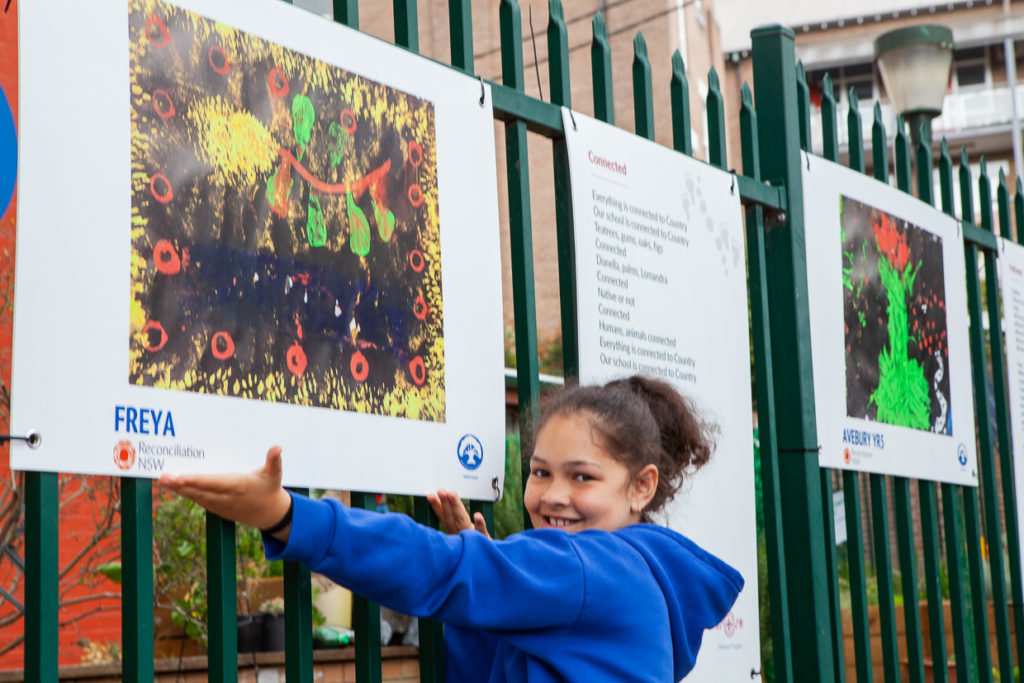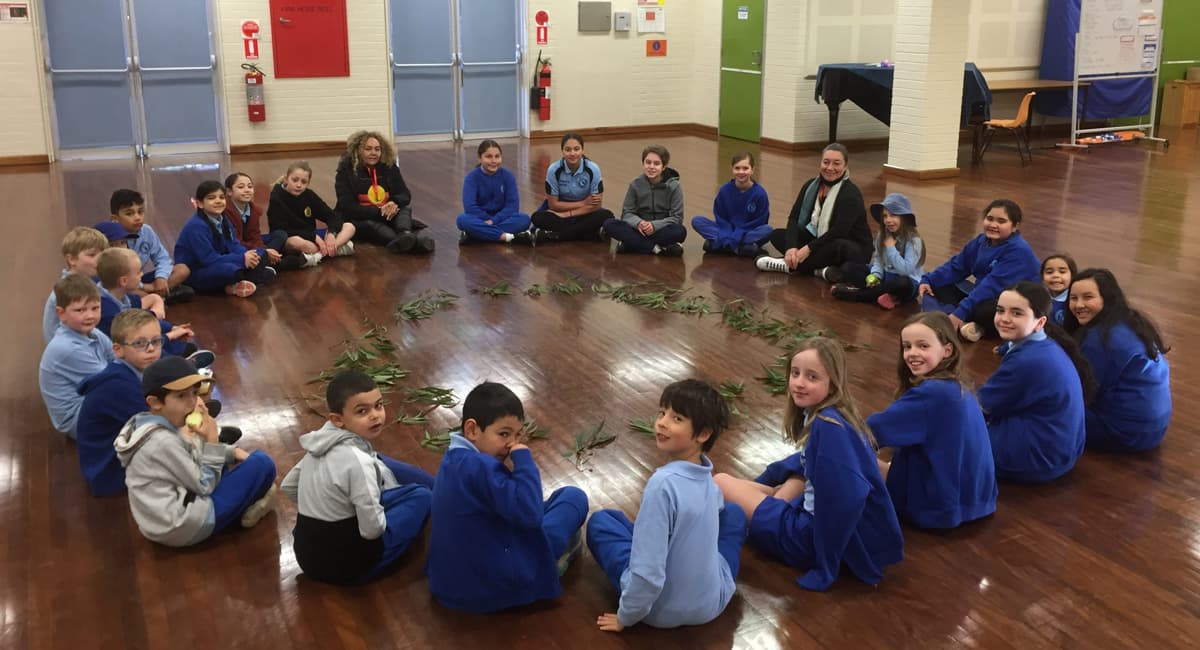
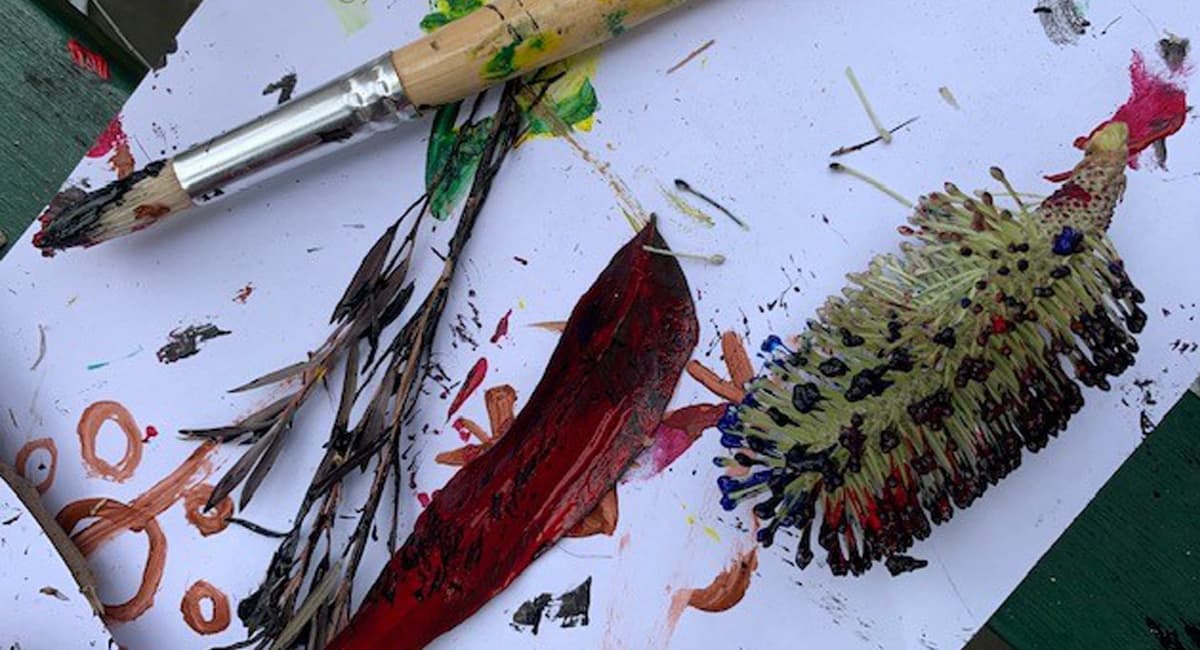
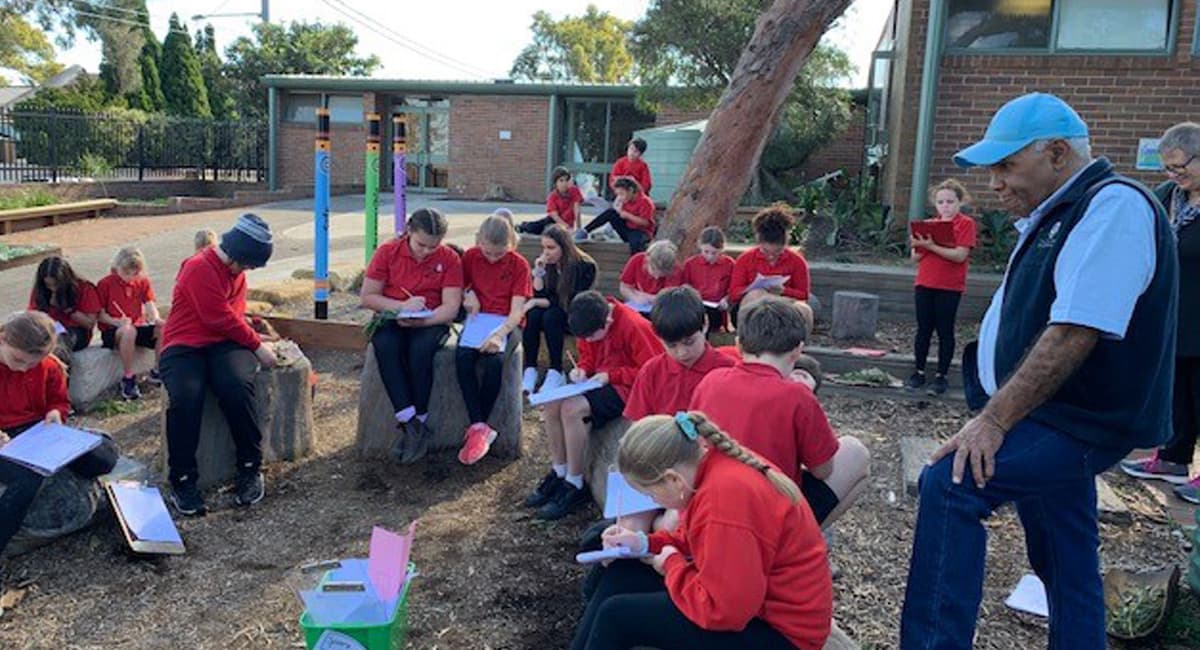

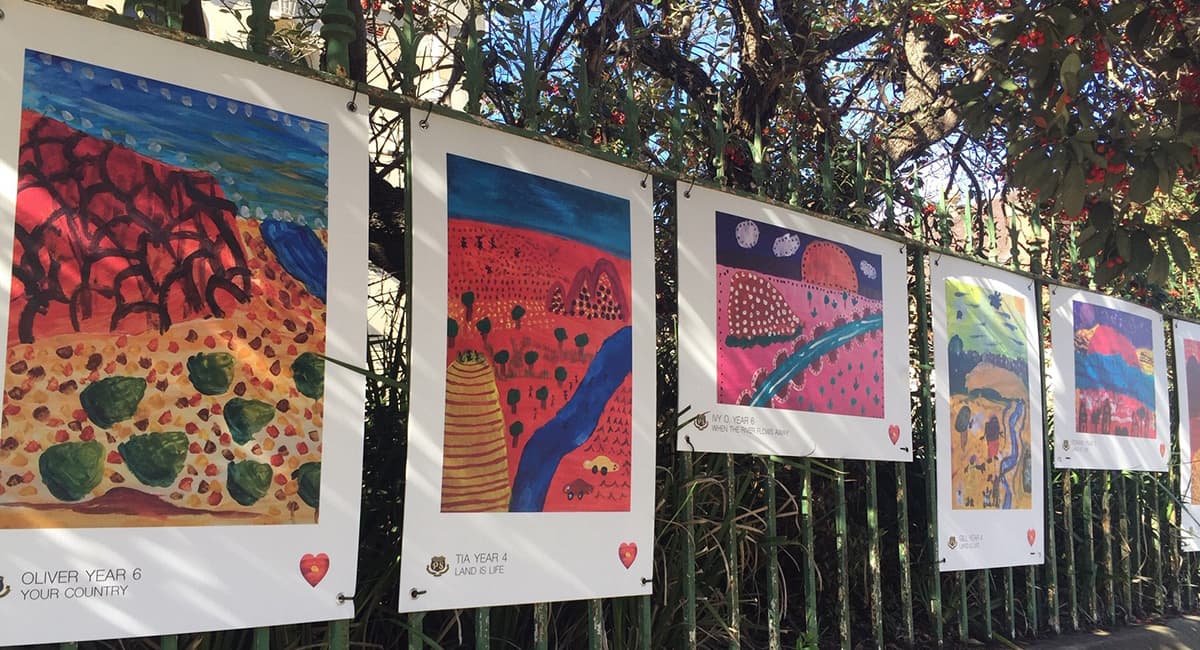

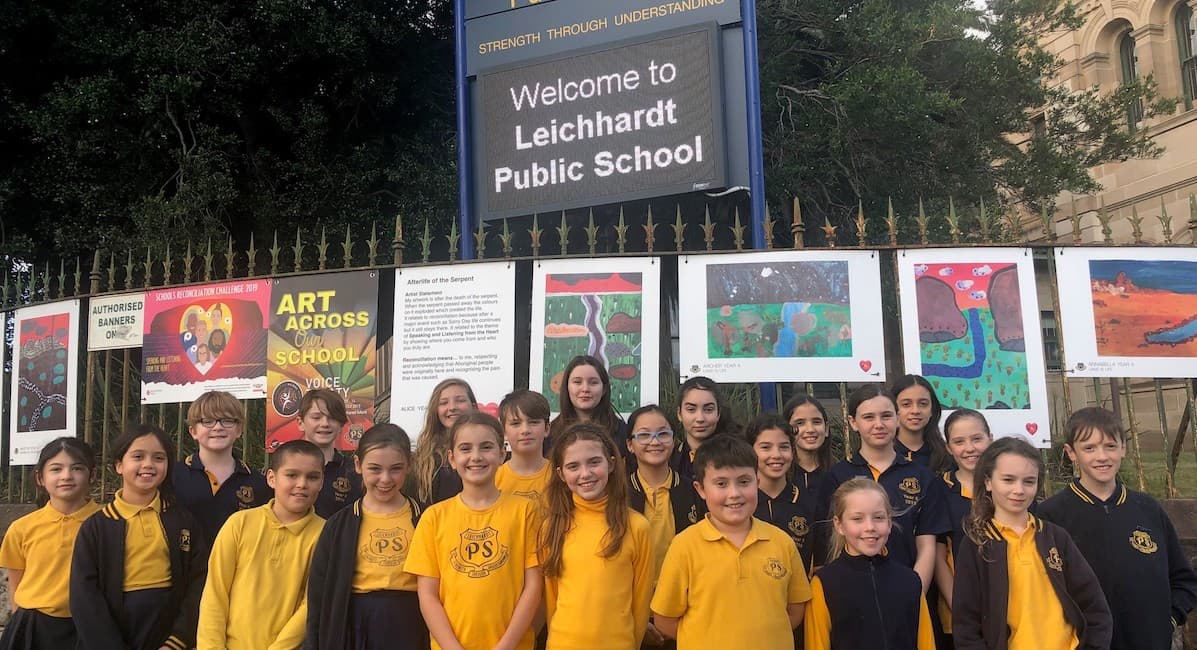
Pathways to Reconciliation Program
Reconciliation NSW delivers art & storytelling workshops as a pathway to reconciliation in communities through local councils, early learning centres and schools.
Pathways program outline
Reconciliation NSW is contracted by local councils, schools or early learning centres to deliver the program in their area:
- Teachers participate in a Reconciliation in Education professional development workshop.
- Teachers who attend workshops are supplied with a reconciliation in education kit containing classroom resources and support materials.
- Three Workshops take place at the school. One Caring for Country workshop delivered onsite (or in nearby nature setting), facilitated by Aboriginal educator. Two onsite workshops where students create artworks inspired by their learnings, with support from Aboriginal Community Arts Officer
- Up to 30 student artworks are then selected for school fence exhibition and digitally printed onto core flute
- Art and writing works are hung on the school fence for community to view
Program aims:
To create meaningful reconciliation initiatives in NSW schools and communities by:
• building teacher confidence
• connecting with local communities
• increasing student engagement & understanding of reconciliation
• increasing community engagement & understanding of reconciliation
• introducing teachers to the Narragunnawali program which provides practical ways to embed meaningful reconciliation
The program supports schools and communities to foster a higher level of knowledge and pride in Aboriginal and Torres Strait Islander histories, cultures and contributions. It aims to improve social cohesion through increased student, teacher and community empathy and understanding of the unique position of Aboriginal and Torres Strait Islander peoples as First Australians.
Students will be inspired to express their learnings through the creation of artworks and stories that highlight their schools and ELSs understanding and connection to their local Aboriginal community and commitment to reconciliation. Schools will be resourced to decorate the fences of their schools with these artworks and messages of reconciliation as a local exhibition for the entire community.
Benefits for your school, centre and community
Resources
|
Classroom resources aligned to the Australian/NSW curriculum, including access to a suite of subject-specific resource guides through the Narragunnawali online platform |
Learning
|
Inspiring learning opportunities for students about the custodial, cultural and spiritual relationship that connects Aboriginal communities to schools and finding out more about some of the historical events which have shaped student lives and identity |
Relationships |
Strengthened links between your school and local Aboriginal and Torres Strait Islander artists, writers and Elders |
Networks
|
Opportunities to connect and exchange ideas with other schools engaging in reconciliation by participating in workshops and events for teachers and students |
Support |
Support for your school’s reconciliation journey, including an introduction to how to develop school-based Reconciliation Action Plan through the Narragunnawali online platform. |
Professional development
|
Improved confidence and capacity of teachers to embed Aboriginal and Torres Strait Islander perspectives in their classrooms. Professional learning resources to support your staff that are connected to the National Quality Standard and the Australian Professional Standards for Teachers (particularly Focus areas 1.4 and 2.4) |
Visibility |
Your school fence will become a gallery for local communities, parents and passers-by; and your students the celebrated artists |
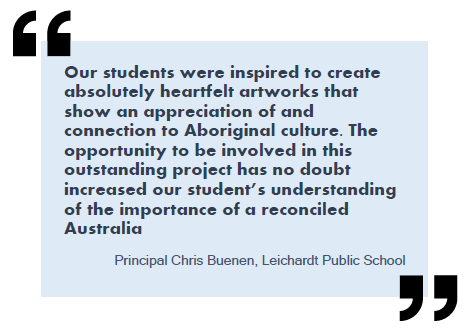
Need more information?
The pathways program is funded by local councils through community grants to local schools, however, can also be delivered on a fee for service bases. Contact Reconciliation NSW to obtain a quote schools@reconciliationnsw.org.au.
Our current program partners are:

Why should councils, schools and centres participate?
Reconciliation is a critical and ongoing process with education the key to positive change.
It is important to recognise the relationship and yet distinctions between ‘Aboriginal education’ and ‘reconciliation in education.’ That is, as well as focusing on strategies/pedagogies for supporting Aboriginal and Torres Strait Islander students’ learning, strong approaches to reconciliation in education simultaneously focus on teaching all students and staff about the importance of reconciliation, and Aboriginal and Torres Strait Islander histories, cultures and contributions.
Focus Areas 1.4 and 2.4 of the Australian Professional Standards for Teachers identify what teachers need to know and be able to do in order to teach Aboriginal and Torres Strait Islander students and to teach all students about Aboriginal and Torres Strait Islander languages, history and culture.
Focus Area 1.4: Strategies for teaching Aboriginal & Torres Strait Islander students
Focus Area 2.4: Understand and respect Aboriginal and Torres Strait Islander people to promote reconciliation between Indigenous and non-Indigenous Australians
These focus areas present a great opportunity for Australian teachers to engage in this important part of our shared national identity, however many teachers are unsure of how to meaningfully address them.
Our program provides NSW schools with a mechanism and resource to increase the capacity and confidence of teachers to embed Aboriginal and Torres Strait Islander perspectives in the classroom and implement reconciliation initiatives at the local community level.

